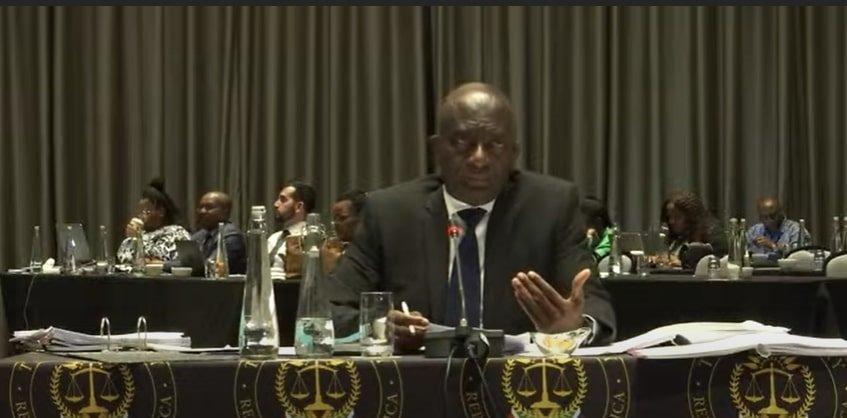Africa-Press – South-Africa. You want to get me into trouble?” said Supreme Court of Appeal (SCA) Judge candidate Elias Matojane after Julius Malema, a member of the Judicial Service Commission (JSC), asked him what society would benefit if an 80-year-old were to be incarcerated.
Malema said by the time an older inmate “gets into society [they] are no longer a human being, they are remains”.
Malema had first asked Matojane about his understanding of why South Africa’s prison system was called correctional services.
Matojane replied that the idea of correctional services was to rehabilitate with the intention of reintroducing individuals back into the community.
On the question of what society would benefit if an elderly person were to be incarcerated, Matojane said: “My answer to you is that you should understand the nature of our work as judges. Parties bring their dispute to us before court.”
Matojane said judges rely on what is brought before them and they can’t go beyond what is before them and do their own “little research on the corner”.
“Your hands are tied. You are called upon to discuss an issue, not to speculate. The question that you are asking is very hypothetical. The nature of my job is hearing evidence, be open to persuasion by counsel… and make a decision,” he said.
But Malema again asked if it was in the best interest of society to incarcerate older people, if it was not in line with what the correctional service system seeks to achieve, which is rehabilitation.
Matojane said:
“And, secondly, I know where you are going with that question – that matter is pending before the Supreme Court of Appeal. I am out of it. Whether I am right or wrong, a higher court is going to relook at the evidence, and then they will decide. If I am wrong, they will say so. It is not really for me to answer that question, Mr Malema with due respect.”
Malema said he didn’t know what matter Matojane was talking about.
But Matojane asked Malema if he was not raising the matter in a “wrong forum”.
The matter Matojane was referring to relates to his ruling last year that former national commissioner of correctional services Arthur Fraser’s decision to place former president Jacob Zuma on medical parole was unlawful.
He then ordered Zuma to return to jail, adding that the time Zuma spent out of jail on medical parole should not be counted for the fulfilment of his 15-month sentence imposed by the Constitutional Court.
Later, Matojane granted Zuma and the Department of Correctional Services leave to appeal against his ruling. He said the matter needed the attention of the SCA. He also added that another court might find that, because of Zuma’s illness and age, the former president needed to be shown “compassion, empathy and humanness – the essence of ubuntu”.
“I am also of the view that there is a reasonable possibility that another court may find that the order, that [Zuma] time spent on medical parole should not count towards fulfilling his sentence, as these impacts on him unfairly in that it was not his decision but that of the commissioner to be released on medical parole,” he ruled at the time.
Matojane is among 11 shortlisted candidates competing for five vacancies on the SCA.
He previously acted as a judge at the SCA, Constitutional Court, and Land Claims Court. He became a judge in 2010.
During the interview, he told the JSC that he would not have a problem if a woman candidate was appointed ahead of him.
He also said being a judge meant one doesn’t have a social life.
“You must want it,” he said.
He also pleaded with the commissioners to “bear in mind that we are sitting judges, I may be in court tomorrow and if I am to avail myself to this process and get humiliated, what are we saying to the parties who are appearing before us?
“We want litigants who appear before you to have confidence that their matters are properly adjudicated upon, but if in this platform it is insinuated that I don’t know what I am doing, why should litigants accept that she/he was unsuccessful in a matter when that litigant knows that I don’t know the law.”
He also said commissioners should bear in mind that judges have families who are watching the interviews and might not have “thick skins”.
For More News And Analysis About South-Africa Follow Africa-Press






